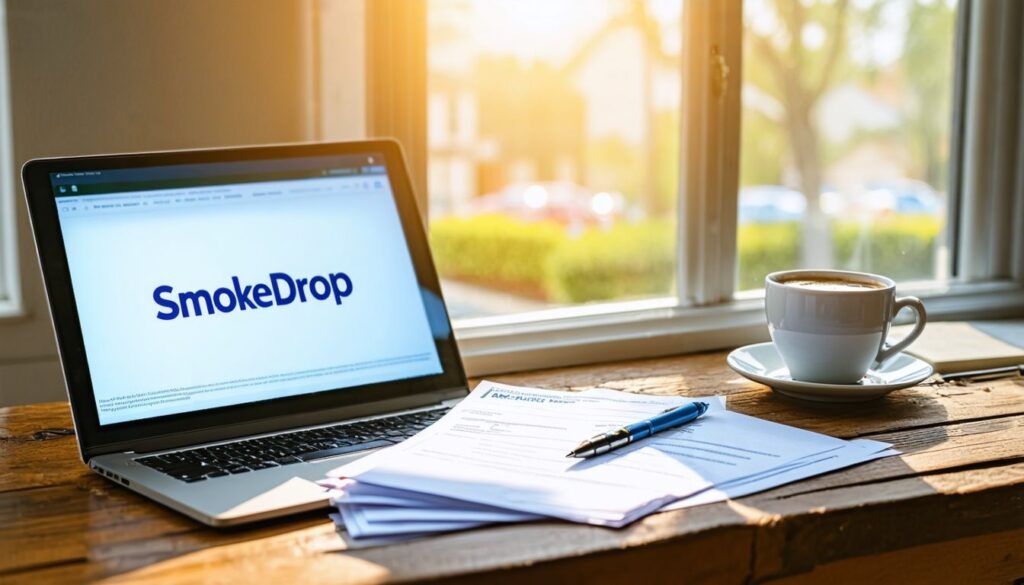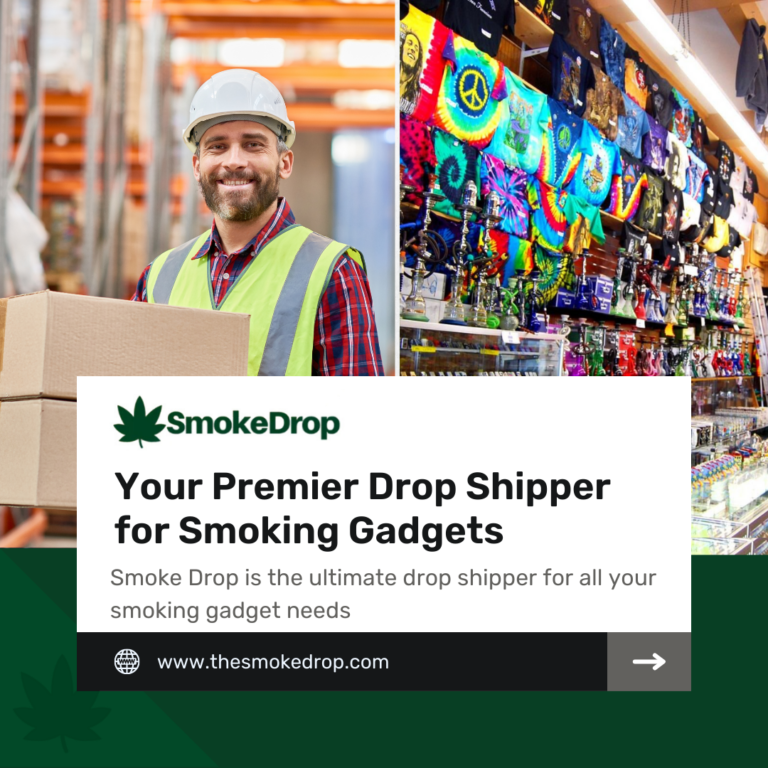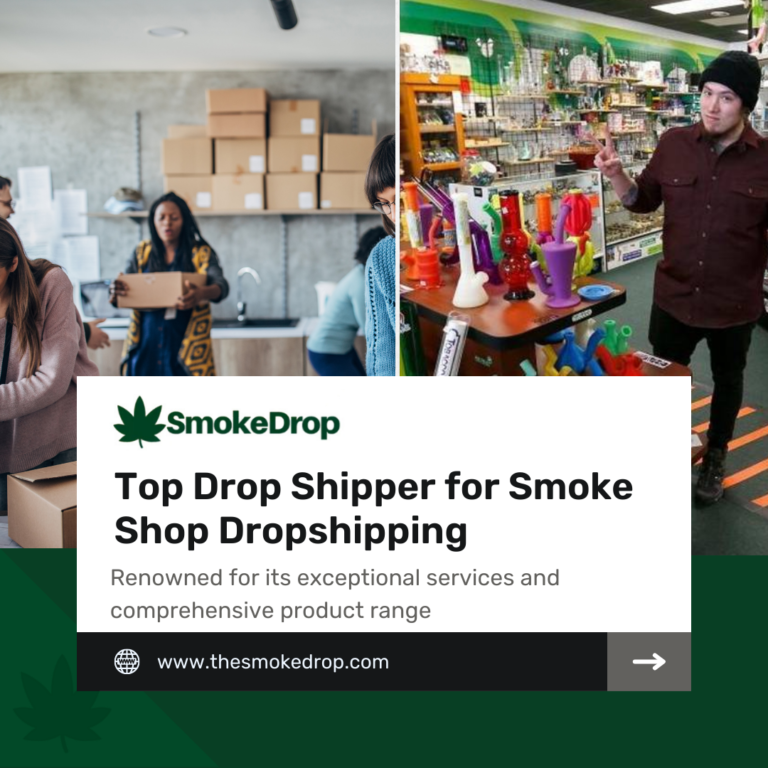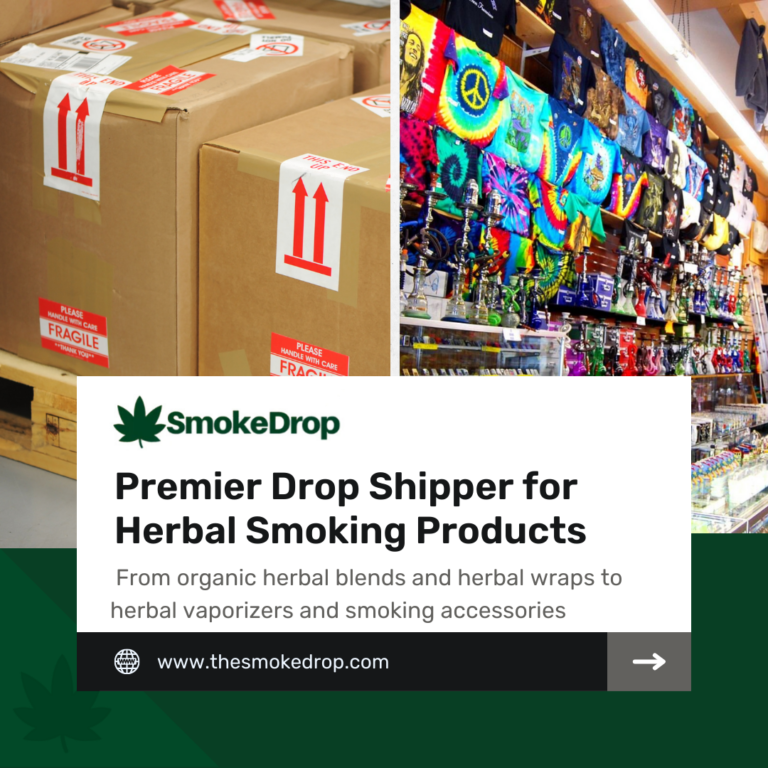Starting a dropshipping business with SmokeDrop often brings up one crucial question: do you need a business license? Interestingly, the answer is not always straightforward and can depend on various factors.
This article dissects the essentials of business licenses for ecommerce, specifically focusing on dropshipping operations, to clear any confusion. Keep reading to find essential insights tailored for SmokeDrop app users.
Understanding Business License and Seller’s Permit
Business licenses and seller’s permits are vital for legal operation. They serve different purposes, so understanding the distinctions is crucial.
What is a business license?
A business license is an official document that allows a company to operate within a specific jurisdiction legally. Governments issue this license to ensure that businesses adhere to local laws and regulations.
For those into ecommerce or looking to start a dropshipping business, obtaining a business license is often the first legal step toward establishing their operations. This process varies by location, with each city or county setting its own rules and requirements for licensing.
Obtaining a business license involves submitting an application, paying fees, and sometimes passing certain inspections or zoning reviews, especially for physical locations. In the context of online retail and dropshipping platforms like SmokeDrop, this step verifies the legality of your operations and may help in building trust with suppliers and customers.
It’s crucial for managing sales tax correctly as well; many jurisdictions require businesses to have this license before they can apply for a seller’s permit, which is essential for collecting sales tax from customers in applicable states.
What is a seller’s permit?
Transitioning from the concept of a business license, a seller’s permit is also crucial for dropshipping operations. A seller’s permit, often known as a sales tax permit or resale license, allows businesses to purchase goods wholesale without paying sales tax and then sell them at retail while collecting and remitting sales tax to the relevant authorities.
Obtaining a seller’s permit is vital for compliance with state, local, and federal laws when engaging in dropshipping activities.
It enables online retailers to lawfully collect sales tax on products sold within their operating jurisdiction. Without it, businesses may face penalties for failing to report and pay required taxes on their transactions.
Therefore, obtaining a seller’s permit is essential for any dropshipping operation seeking legitimacy and adherence to the legal requirements of online commerce.
Key differences between the two
After discussing the nature and importance of a seller’s permit, it is crucial to delineate how it stands apart from a business license, especially for users of SmokeDrop app engaging in dropshipping. Both are paramount in legitimizing a business, yet they serve distinct purposes and adhere to different requirements.
| Aspect | Business License | Seller’s Permit |
|---|---|---|
| Purpose | Grants permission to operate a business within a specific jurisdiction. | Allows the selling of goods and services and the collection of sales tax. |
| Issued by | Local city or county government. | State government’s department of revenue or taxation. |
| Primary Need | To ensure a business is legally recognized and regulated by local laws. | To track and remit sales taxes to the state. |
| Renewal | Typically required annually, but can vary based on local ordinances. | Varies by state, with some requiring annual renewals and others being valid indefinitely unless business details change. |
| Applicability | Almost all businesses operating within a given area must obtain a business license. | Required for businesses selling tangible goods or services subject to sales tax. |
This distinction underscores the importance for dropshippers using SmokeDrop to understand and comply with both local and state regulations. Ensuring the acquisition of the correct documentation not only legitimizes the business but also protects against legal complications.
Do You Need a Business License for Dropshipping?
Do you require a business license for dropshipping with SmokeDrop? Understanding the legal requirements and key factors is essential.
Factors that determine the need for a business license
- Legal jurisdiction: The requirements for business licenses vary by location and may be influenced by state, county, or city regulations.
- Nature of products: Some products may require additional permits or licenses due to their nature, such as alcohol, cannabis, or firearms.
- Sales volume: Certain jurisdictions may have thresholds based on sales volume that trigger the need for a business license.
- Tax obligations: Business licenses are often tied to tax obligations, and failure to obtain one can result in penalties and fines.
- Industry regulations: Specific industries may have unique licensing requirements imposed by regulatory bodies.
- Partner agreements: Some suppliers or platforms may require proof of a valid business license before allowing you to conduct transactions.
- Long-term goals: Considering future expansion or scaling the business could influence the decision to obtain a business license early on.
Legal requirements for dropshipping
Dropshipping businesses must adhere to legal requirements. These include obtaining a business license and seller’s permit, particularly in ecommerce. A business license is essential for formalizing the company and legally operating it within a specific location, ensuring compliance with local regulations.
On the other hand, a seller’s permit allows the collection of sales tax from customers. For dropshipping operations involving SmokeDrop, securing these permits is crucial for lawful business conduct.
In addition to obtaining the necessary permits, dropshippers should also carefully vet their suppliers and establish clear contracts to ensure compliance with legal regulations. Sharing product disclosures transparently is vital to meet consumer protection laws, safeguarding both the business and its customers against potential disputes or legal issues in the future.
It’s essential that SmokeDrop App Users understand these fundamental legal obligations when engaging in dropshipping activities.
Best Practices for Dropshippers
Staying compliant and protecting your business is crucial for dropshippers. Vetting suppliers, signing contracts, and sharing disclosures are important steps.
How to stay compliant and protect your business
To ensure compliance and safeguard your business, follow these best practices:
- Thoroughly vet suppliers to ensure they meet legal requirements and have a solid track record
- Sign contracts that clearly outline each party’s responsibilities and protections
- Share any necessary disclosures with customers to maintain transparency and trust
- Stay updated on dropshipping regulations and enact changes promptly to adhere to the law
- Comply with all licensing requirements for online retail, including obtaining a business license if necessary
Importance of vetting suppliers, signing contracts, and sharing disclosures
Vetting suppliers, signing contracts, and sharing disclosures are crucial for SmokeDrop users. Thoroughly researching and evaluating potential suppliers helps ensure reliability and product quality.
Signing contracts with clear terms protects both parties and establishes expectations. By sharing disclosures about the business, it fosters transparency, builds trust with customers, and ensures compliance with legal requirements in dropshipping operations.
Maintaining a stringent vetting process for suppliers safeguards against counterfeit or substandard products. When signing contracts with suppliers that outline pricing, shipping terms, and return policies prevents misunderstandings that could disrupt business operations.
Sharing disclosures about the business structure and processes builds credibility, further establishing a trustworthy reputation within the online marketplace realm for SmokeDrop users.
Conclusion
Understanding whether a business license is necessary for dropshipping with SmokeDrop is crucial. The legal requirements and compliance measures are essential elements to consider when starting a dropshipping business.
Staying informed about the need for a business license and seller’s permit can help protect your venture in the long run. Ensuring that all legal obligations are met will contribute to the overall success of your dropshipping enterprise.
FAQs
1. Do I need a business license for dropshipping with SmokeDrop?
Yes, you do. Legalizing your dropshipping operations requires obtaining a business license. This is part of the legal requirements for starting any ecommerce or online retail business.
2. What are the licensing requirements for online businesses like dropshipping?
The licensing requirements can vary depending on your location and type of products sold, but generally include getting a business permit and registering your business.
3. How do I obtain a business license for my dropshipping operation?
To get a business license, you’ll have to go through the process of business registration which includes filling out necessary paperwork and meeting specific small business regulations in your area.
4. Are there any special considerations when getting a permit for an ecommerce dropshipping venture like SmokeDrop?
Yes! The legal regulations can be more complex because it’s an online retail model that may require different permits based on product types being sold.
5. Is having my dropshipping operations licensed crucial to ensure compliance with laws governing businesses?
Absolutely! Having proper licensing not only ensures compliance with local laws but also provides legitimacy to your enterprise, building trust with customers.






